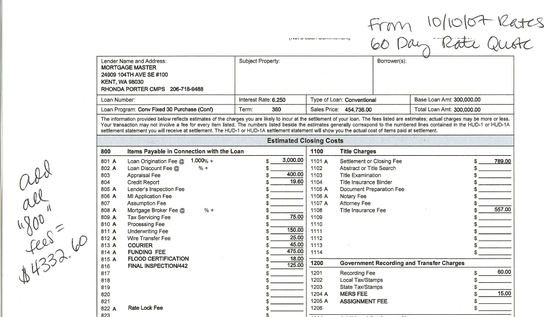Are you considering buying a home or refinancing in the future? You can now sign up to receive weekly email tips on home buying, preparing to refinance and credit scoring. Simply click on the links I’ve provided on the left side of Mortgage Porter under the green Mortgage Weekly box at Favorite Links.
It’s simple, free and I won’t hound you (unless you want me to)!













Recent Comments